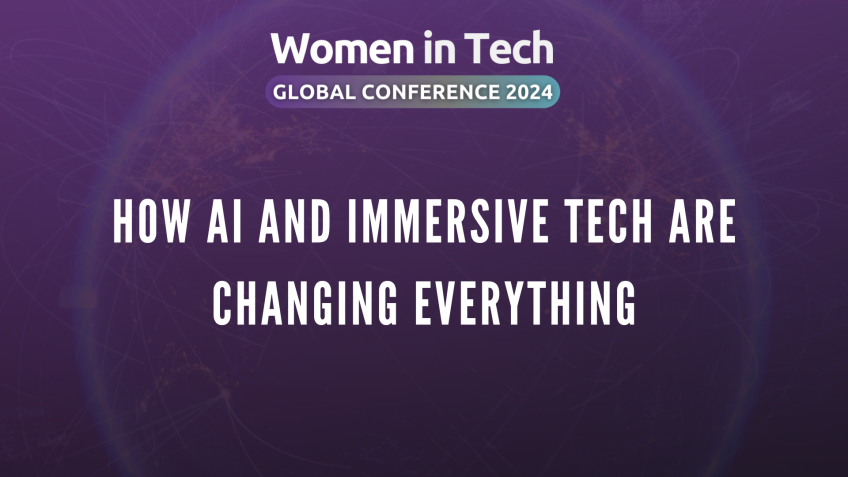Creating a Winning Culture
Deb Cupp
PresidentCreating a Winning Corporate Culture: A Lesson from Microsoft's Journey
Welcome to our exploration of cultivating a successful corporate culture. I'm here to share insights, driven by Microsoft's own transformative journey, with ideas you can apply to your teams and organizations.
Microsoft's Culture Journey: Swapping Competitiveness for Learning
Microsoft's culture journey commenced in 1975 with founders Bill Gates and Paul Allen's mission to put a computer on every desk in every home. That was accomplished, however, the competitiveness that fueled our initial growth began working against us, stifling innovation and internal collaboration. By 2010, we were on the verge of being outflanked by peers. Hence, our CEO Satya Nadella, in 2014, spearheaded a cultural shift from 'know it alls ' to 'learn it alls '.
Nurturing a 'Learning Culture'
Rooting this new culture based on a 'growth mindset' required every employee learning from failures, embracing others' ideas, and viewing others' success as their own. This shift nurtured empathic collegial relations, enhancing team efficiency.
Addressing Employee Burnout
Amid ongoing global uncertainties, it became evident that we needed a remedy for employee burnout. 'The human energy crisis', as Microsoft's Chief People Officer Kathleen Hogan calls it, was draining our workforce energy. Our Work Trend Index Report showed that nearly every second employee was experiencing work burnout. Hence, we pondered on building a work culture that not only sustains but also energizes employees.
Five Foundations of a Winning Culture
I have identified the top five elements essential to creating a thriving work culture:
- Prioritize Employee Well-being: Considering employee well-being holistically, Microsoft innovated a discretionary time off policy in the U.S., allowing employees unlimited time off. Although well-intended, we discovered that the policy deterred some employees from taking time off. Hence, it is crucial for us as leaders to walk the talk and model proper utilization of these policies, fostering a culture of self-care.
- Facilitate Flexible Work Environments: Companies offering location and time flexibility enhance employee satisfaction and are more likely to be recommended as workplaces, as per Linkedin's 2022 Global Talent Trends report.
- Strengthen Managerial Expertise: The Gallup Research pointed out that managers account for 70% of the variance in team engagement levels. Hence, managerial capability development is vital for fostering a supportive team environment that balances business execution and employee satisfaction.
- Endeavor for Inclusive Connection: Including diversity is a non-negotiable aspect of a victorious culture. Therefore, it is essential for leaders to model behaviors that reflect this inclusivity.
- Promote Learning and Career Growth: Lack of career growth opportunities is the leading cause of employee attrition at Microsoft. Therefore, creating scopes for employees to develop skills and grow their careers is essential for employee retention.
Show Your Employees They Matter
Creating a winning culture starts with showing your employees they matter. By recognizing and appreciating their efforts and contributions, you can plant the seed for a thriving and inclusive culture within your team or organization.
Wrapping Up
Building a decisive culture is key to any company's success. By prioritizing well-being, facilitating flexibility, strengthening managerial expertise, endorsing inclusion, and promoting career growth, you can cultivate a culture that drives your company's mission and strategy while keeping your employees energized and committed.
Thank you all for coming along on this journey exploring the realms of corporate culture, and don’t forget to share your key takeaways in the comments below.
Video Transcription
Hello, everyone. I'm Deb Cupp. I'm the president of Microsoft North America. I'm thrilled to be here to help kick off the chief in Tech summit and I can't think of a better way to start off a conference than to talk about culture.Culture is the foundation of every company mission and strategy. And in the opening video, you just saw you got a glimpse into the culture at Microsoft across 100 and 90 countries and 220,000 employees, we work hard to create an inclusive culture that celebrates unique perspectives and diverse experiences where every person can show up as their own authentic selves.
Microsoft has been on a culture journey for many years now and we've learned a lot and I'm excited to share with you some of those learnings in hopes that you walk away with some tips and takeaways on how to create a winning culture in your team or organization. So first, let me take you on a little journey, a little history lesson of Microsoft. Our company was founded in 1975 by Bill Gates and Paul Allen. And the original mission was to put a computer on every desk in every home. And we saw a lot of success and essentially accomplish that mission. But then over the years, the spirit of competitiveness that actually helped us grow in the early years started working against us. And I know some of you have seen this comic org chart of Microsoft with people all pointing guns at each other. We were seeing headlines like Microsoft's creative destruction and how Microsoft lost its mojo articles like these questioned our creativity, our ability to innovate and blamed our culture of internal competition. In the early 2010, Microsoft was really in danger of being outpaced by our competitors and other tech firms and it was because of our culture, that's what was to blame. So when Satya became our CEO in 2014, he said it best.
We'd become a bunch of know it alls when we really needed to be a bunch of learn it alls. And so we started this journey on this shift to a cultural of learning, a culture grounded in growth mindset. We are all willing to lean in to uncertainty, take risks, move quickly when we make mistakes and recognizing failure as an opportunity to learn where we were open to the ideas of others that it wasn't just our own success and their success didn't diminish our own. That mindset had helped us become more empathetic towards our colleagues, enabled us to work better as a team and it's become the core in how we think and act and what we do every single day. So I want to take a moment to recognize the past few years have not been easy. We've all been through a lot personally and professionally through the pandemic, ongoing global unrest, market uncertainty. We know our employees are stressed and that they're burning out. Microsoft's Chief People Officer Kathleen Hogan calls this collective fatigue the human energy crisis. What we define as the chronic depletion of energy among the workforce according to Micro Microsoft's work trend index report which surveyed global companies, 48% of employees and 53% of managers report they're burned out at work.
That think about that, that's one and two people struggle to maintain balance in their work and personal lives and their human energy is just quickly depleting. So in the midst of all these challenging times, we have to ask ourselves, how do we help our people recharge sustain the energy? They need to endure a marathon, not a sprint. And how do we help them not just survive, but we want them to thrive and culture has to be front and center. So how do we do this? How do we build A N and nurture a winning culture? There's a lot of things we can do. But let me share what I believe to be the top five keys to really creating that winning culture. Starting with number one, you have to prioritize. Well, being and we have to think about well being holistically, which includes physical, mental, emotional and financial well being.
It's important for companies to think about the benefits they offer across these areas. We have to think about how we can help our people feel cared for beyond just an employee. But as a human being earlier this year, Microsoft announced our new discretionary time off policy in the US, which gives employees unlimited time off. What we're finding is interesting. It's actually having the opposite effect. People are feeling the pressure to be seen at their jobs, not taking the time or they're cutting their vacation short. I've personally had a couple of examples where a few leaders of mine tried to dial in to a call while on vacation and I saw another one responding to an email. So I stopped them both. I said, stop folks. It's important that you take the time. It's important that we model that behavior and we let people know we want and need them to take a break. And it's equally important for us to walk the walk. You've got to model self care. So their teams feel empowered to advocate for their own. Well, being when I go on vacation, I don't put my phone number in my out of office email. I want to model what it looks like when we take time off and that we have to truly disconnect.
We've got to trust that our teams are amazing, they're competent, they're ready to take up, take up what you can't do when you're not there and then you go rest and recharge so you can return back, ready to give your best. Another aspect of contributing to employee role, bringing is being intentional with flexibility, creating a flexible workplace for our employees is something that we're really passionate about at Microsoft. It's a critical differentiator for us in this new world of work and a core part of our culture.
And we really at Microsoft are aspiring to be a shining example of hybrid flexible work enabled by our cultural technology for ourselves and for our customers and for the world. We also get that one size doesn't fit all. So we gotta look at it across dimensions. First, think about the work site, it's the physical space in where you work. Second is the work location, that's the geographic location where you work and third work hours, which would be the hours and the days as you work, we have to think about a flexible approach that enables our employees to do their best work across those three things and maintain their well being as we look to others outside the company, linkedin's 2022 Global Talent Trends report stated that when employees are satisfied with their company's time and location flexibility, they're 2.6 times more likely to report being happy and 2.1 times more likely to recommend working for the company.
So we've asked our managers to create team agreements and that's the balance on individual performance, individual preferences with the team. What they wanna do, how they split your expectations and how they wanna model together our hybrid environments. It's the job of every leader and manager to balance employee interests with the success of the team. Let's be honest, that's hard. Right? You got to work on it. It's something we can do together. We published our annual report trend index last fall. That's one of the things of the survey that was this concept of productivity paranoia, 87% of employees report that they are productive at work. Meanwhile, interestingly enough, 12% of leaders say they don't have full confidence or 12% have full confidence that their team is productive.
So there's definitely a disconnect there too. So it's our job as leaders to create that clarity on work priorities for employees, create a culture where we're rewarding them for the impact and not just their activity. And that is really key impact, not just activity. So that brings me to the third key to creating a winning culture and that's focusing on leader and manager capabilities. The role of managers has never been more important managers today have more influence on their employees happiness than ever before. And the research tells us that Gallup research from Galas tells us that the manager or the team winner alone accounts for 70% of the variance in team engagement. 70%. At the same time, we recognize that leaders and managers are under a lot of pressure. So for any of the managers out there watching first, I just want to express my deep gratitude as managers, you have to balance between a focus on your people, a focus on execution in your business, between driving results and creating a supportive environment for your employees.
You're shouldering a lot and I know that you and I hope that your leaders in your companies recognize it. It's incredibly important that we encrypt all those managers out there with the support and the resources to be successful at Microsoft. We have manager expectations frameworks and it really defines the role of managers at Microsoft and how they deliver success through empowerment, accountability by modeling, coaching and caring. And we talk about that a lot. Model coaching care. Every manager goes through required training on how this framework works and how to do it best living our culture and our values and this model and the behaviors that they want to see coaching people through things that are hard and provide constructive feedback, value each person for who they are and empower them to grow.
We also have a bi annual survey that goes out to employees asking them to give us their feedback on their managers and we're seeing really positive feedback, but there are always rooms for improvement. And if I would say three themes where we see an opportunity for managers to do better based on our most recent survey. It's about taking a moment to reflect and see if any of these resonate with you. That's how we learned. So let me tell you what they are first, strong need for managers to do a better job of prioritizing work and ensuring that we're focusing our people on the time and the energy of what matters most prioritization, helping eliminate non value added activities and connect each person's work to the team's most important priorities.
Second, there's an ask for managers to be talent stewards and ensure employees are aware of all of the opportunities across the company and support internal mobility, the best people, managers foster talent to other parts of the company. You don't hoard talent, you foster talent, you help people grow into their careers. And third employees have asked for more timely and constructive feedback on areas they can improve. I think sometimes managers confuse the expectations of care to mean avoiding having difficult conversations and not expecting high performance.
When in fact, it's actually the opposite if you're open and you're honest about opportunities to improve, that is care and mo managers who model coach and care, create such a positive impact on their employees and their teams. When we think about teams and what they look like and winning cultures, they're inclusive and connected and high performing. That's what we strive to build. And I also think about in the context of diversity and inclusion for us. It's not a nice to have. It's a business imperative at Microsoft to achieve our mission of empowering every person and every organization on the planet. To achieve more, we have to represent the people. We serve our approach to DN I is, it's everyone's accountability. At Microsoft, we ask every employee to commit to a personal DN I priority as part of their performance objectives, As leaders, I see us as accountable as leading by example, we've got to create that ripple effect and that opportunity for impact. It starts with leaders personally role modelling, the behaviors, taking the actions needed to build systemic cultural change while also coaching our teams and each other accordingly. Specifically, here's what I ask of my leaders, I regularly look to make sure that representation is there as we grow in diversity.
We are modeling, hiring and talent movement behaviors. We are absolutely caring and creating psychologically safe workspaces that's deeply important and to coach their managers on the inclusion behaviors and how to lead dialogues with their teams. It's not just a representation, it's also about inclusion.
And I love this quote. I go where I'm invited, but I stay where I'm welcomed. So much has changed over the past two years, nearly all teams have shifted in some way as we've moved into this new world of work, I run a 10,000 person organization at Microsoft. 40% of my team is new to the company in the past three years. As a company, we decided what a great opportunity to create space and connection to each other and our culture create the space to reconnect with one each other. How do we do that? It's important. So this past year, we've been leading what we call these culture conversations with our teams. It's dedicated time. It's really simple where we have an open dialogue we share with each other. Our work connects to our mission. How that connects we discuss our values, our attributes and we share ways on how we want to make it real in our daily interactions. And wow, the, the feedback has been incredible outpouring of positive feedback. When we ask the question, what's your biggest takeaway? Here's one of my favorite quote from one of our employees. Our culture acts as a hub when all the other points, spokes on the wheel, it grounds us aligns us and enables us to support our mission and our execution. And that's, that's awesome. That's what we want. We want that culture to be the hub. I talked earlier about being intentional about a flexible workspace feeling included and connected to your team matters more than ever.
In this hybrid era, we have to be more intentional on how we create that social connection, whether it's in person or it's virtual. So for example, if you're asking teams to come to the office, embrace the fact that people come in for each other. Our workfront trend index report from last fall reported, 73% of employees say they need a better reason to go into the office than just company expectations. So let's make it worth their while. The key is to understand when in person truly matters and be intentional about those moments, prioritize activities that create team bonds and foster connection and for remote employees think about creative ways to bring that virtual community together. And something that to me is super important is just having fun. People want to have fun at work. It can be super simple things for those of you who use teams, which I hope you all use teams. There's a fun games for work app on teams. You can play online games like Minesweeper Wardman, Solitaire Icebreakers with your colleagues on the call. It's a great way to promote team bonding. It's simple. It's easy fun. Just something you can do while you're waiting for people to join a call. But in church of people to check this stuff out if you don't know about it, it's just fun. Little things that people connected. I can't read enough how important it is to build inclusive and connected teams.
In addition to that people feel energized when they see opportunities at work to learn, build skills and grow their careers. In fact, at Microsoft, we know that lack of career growth is the number one reason people leave. So it's super important that companies provide their employees with meaningful learning opportunities to expand their knowledge and skill set. I'll give you some examples of things we've done at Microsoft for my organization specifically, we have learning Fridays two times a month where we actually send out calendar invites to block their calendars so other meetings can't be scheduled. So it's just an opportunity for them to complete any required training and space to go learn new things. We also have a robust set of career development resources for employees to leverage and it includes things like a journey map for career with career resources and also career development templates. We've also hosted an internal marketplace for micro experiences and that's about matching people and teams who have short term needs and specific skill sets.
So an employee can go outside of their own team, try something new, a new activity and scope a little to take on a stretch assignment. It's just great opportunities for intentional career development. We also host a discovery day once a year and that's where in total employees go to a career fair and it helps employees explore roles within the company. They get to connect with their peers in meaningful ways and hear from different leaders across Microsoft. So in our internal work trend index report, 76% of employees surveyed said they would stay at their company longer if they had better access to support and learning. So I guarantee you, you and your companies have a lot of access to support and learning. It's time to energize those activities to make sure you're supporting your people. It's been a really interesting time, the past six months, with market uncertainty in some cases, you may have slowed your external hiring. That's an opportunity to double down on your internal talent movement.
Be more intentional about creating opportunities for learning growth, stretch projects, new roles for your people. We've been challenged to step outside our comfort zone and seek new opportunities and learning and career growth creates such positive energy and we should be deeply invested in helping our employees do that.
So I know I've covered a lot and I want to quickly recap what we can do to create environments where our employees can thrive five keys to creating a winning culture. One prioritize well being two, be intentional about flexibility. Three, focus on manager capabilities, four build, inclusive and connective teams and five support learning and career growth. And if we all focus on these things, we can make such a positive impact. Simply put it boils down to our people. They just want to be seen. And one simple thing I think all of us can do. It's so easy to show your appreciation. I'm gonna ask you to all go do it, just send an instant message, send a text call colleague today. If you're on teams, I hope you are send them a kudos or praise. Recognize something that somebody did. It is so powerful. It takes one minute. It's unbelievable how this little effort by you will have a huge impact on someone else. And it also creates this amazing ripple effect. That's the type of stuff that creates culture. Thank you so much for having me.
Thank you so much, Deb for this insightful presentation. I really love what you shared. I go where I'm invited but I stay where I'm Malcolm. And this is so true. That's something that resonated with me. Let us know the participants, what resonated with you the most and share in the chat. And let's thank that cup for this really interesting presentation on culture and people. And ultimately, it's all about the people and something that we shared before about sending that message, whether it's Friday or any day of the week, just appreciating the effort that your team is doing is so crucial. Thank you so much, Deb.






